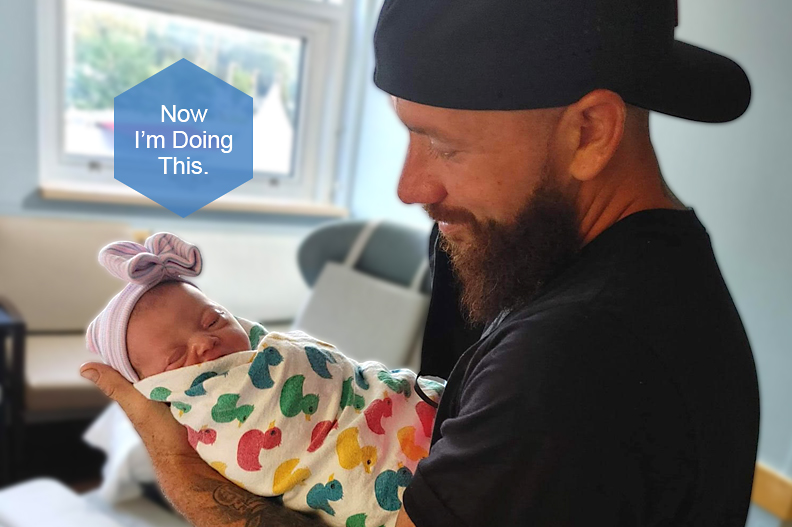“My mom still has moments. If she doesn’t hear from us for a day or two, she panics,” explains Stacy, a Maryhaven alumnus (pictured above, with his daughter).
Don’t assume Stacy’s mother exhibits overly anxious or obsessive behaviors. For eight years, both of her sons were lost to addiction, often homeless, sometimes in jail, and, let’s face it, probably incredibly, painfully self-centered and hard to be around. Radio silence often meant relapse or worse.
Dave talks about how he had to apologize and atone for the ways he treated and cheated his family while actively gambling. And Kelsey’s voice softens when he reflects on how much time he missed with his children.
For those who love an addicted person, life can be unbalanced and unpredictable. Their experiences compare to those of the lab rats in psychologist B.F. Skinner’s famous operant conditioning experiments. Only this time, no logic dictates the rules, no warning buys you time to react. It’s just a string of indiscriminate shocks. If a reward is offered, it usually comes with strings attached.
If memories were a series of images, their photos more closely resemble a constantly churning kaleidoscope, lurching awkwardly from hope to despair, joy to fury and back again.
What if you woke up every morning not knowing if your child will make it through the day? Stacy’s mom slept better when her sons were in jail because she at least knew where they were.
How much fear flooded through Dave’s parents when they learned that gambling pushed him to the brink of suicide? What did Kelsey’s son tell his friends when they asked him where his dad was and the answer was somewhere using crack?
No wonder families living with addiction also divorce more frequently and demonstrate higher rates of domestic violence and child behavioral issues. The stress and trauma of daily life seriously jeopardize physical and behavioral health.
At the same time, families also can be instrumental to recovery and benefit greatly from eventual sobriety. Most days, Stacy’s mom accepts that her sons are safe even outside incarceration. Dave’s family enjoys “taste-testing” his delicious baked goods. Kelsey’s son knows exactly where to find his father and looks forward to their time together.
Over the years, I’ve heard countless stories of appreciation from people in recovery who credit a sibling, parent, grandparent or other loved one as a source of inspiration to seek treatment and stay well. “My sister kept calling until she got me into Maryhaven.” “My grandmother never gave up on me.” “My Dad never stopped telling me he loved me, even when he told me I couldn’t come home until I got clean.”
Addiction isn’t a solo act. Fortunately, recovery isn’t one either. Click here to get started or call 614-324-5425.
Also, check out Stacy’s television ad for Maryhaven below and see others, along with special podcasts featuring all of our wonderful real-life talent, at maryhaven.com/stories.
